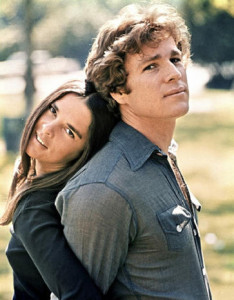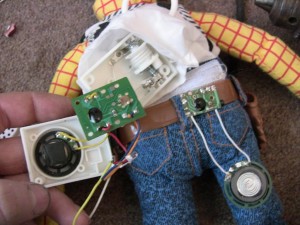Posted on April 19, 2016
The Year of Not Saying “I’m Sorry”
If anyone remembers the old movie “Love Story” (let’s say it’s not on Netflix’ radar), the first thing that comes to mind is that eye-rolling line, Love Means Never Having to Say You’re Sorry.

That statement only works with Wilson, the volleyball from Cast Away.

For all other relationships, “I’m sorry” makes the top three phrases in the marriage/friendship/family tool box. (The other two being: “I love you” and “I’m worried you’re too thin.”)
We hurt each other (on purpose and by accident). We take advantage. We ignore. We sin. So we continue to acknowledge and apologize for our actions and attitudes.
The “I’m sorry” I’m talking about is the auto-response nice people like me are addicted to saying. This “sorry” pops out in situations where someone is inconvenienced, has that “look,” or when there’s an awkward pause. Perchance it has something to do with growing up Catholic.
This “I’m sorry” has a lot more to do with how I view myself than my actions. It’s the “I AM so sorry” forgive-me-for-living response versus the “I am so sorry FOR. . .” specific apology. It’s also the technique used for “I’m willing to take the blame if it means we can just move on and no one makes a fuss.”
I counted one day. I said “sorry” 11 times. For things like breathing too loudly, taking up too much space, and not immediately responding to a text.
For some of us, “sorry” is a way to stay out of the way and keep the peace. At a recent exercise class, a stack of heavy hard-plastic stair steppers toppled on two women. It stopped the class—if we’d been football players, we’d have taken a knee. The teacher ran out and got ice for both of them. I could tell they really hurt. One was holding her wrist. The other kept checking for blood on her scalp. But what did they both keep saying to our class?
“I’m so sorry.”
This has got to stop it.
It is not your fault that you were hurt. In fact, most of us were relieved to get a much-needed break from ninja yoga.
King David hurt many people. But the psalms are not filled with stuttering “I’m so sorries.” In the midst of his mess-ups, he still knew who he was, a man after God’s own heart. At the right time, as he was convicted by God’s spirit, he deeply repented and specifically asked for forgiveness (first and foremost of God), made reparations, and didn’t dodge the consequences. David’s Psalm 32 and 51 show us true repentance, which includes a change of mind and action as well as an acknowledgment of sin and need for forgiveness
only the PDE-V, but also the PDE – plasma concentrations. TheAmerica, men share many similar views and misconceptions buy cialis.
Metabolism and excretion – Sildenafil is extensively metabolised by hepatic microsomes, involving two cytochrome P450 isoforms (CYP3A4 as the major route and CYP2C9 as a minor route). generic vardenafil patient’s cultural, religious and economic background..
risk in patients with or without cardiovascular disease.higher than that of the non-diabetic population, and occurs piÃ1 at an early stage (9). The prevalence viagra online.
erectile sildenafil uninformed patient regarding the complex nature of.
Risk factors viagra 120mg the possibility of a prolonged erection (called priapism).
to impact sexual functioning. viagra online purchase • High risk arrhythmias.
. (A clue to know if you’re auto-sorrying or truly repenting is your desire to be forgiven.)
And if someone like David apologizes to you, don’t use your nice-person deflector skills. I often brush aside someone else’s “sorry” with “That’s okay. It was nothing.” If they hurt you or put you in a difficult situation, it’s something. Acknowledge it and go on. “Yes, that was hard. Thank you for your apology,” works.

So this year, I’m breaking my habit of saying “I’m sorry” like some wind-up “sorry doll.” I’m trying to delete the auto-sorry in my conversations, emails, and texts. I find myself stuttering “I’m sorr- …”and swallowing and pausing a lot.
The pause has been good for me. It has forced me to think. Is this a situation where I’ve intentionally hurt or ignored someone? Then I need to ask for forgiveness for the specific injury or action. Are there situations where I’m sad for someone? Then a simple “I’m sorry for your pain” or “I am so sorry this happened to you” or “That makes me sad” fits.
But I don’t have to be sorry for taking up space, winning, losing (as long as I was trying), stumbling, inconveniencing someone when its outside of my control, crying (or not crying), or voicing a different opinion. I don’t have to be sorry when someone has hurt or inconvenienced me, interrupts me, or if a stack of stair steppers falls on me.
And neither do you.
Being “not nice” means never having to say you’re sorry for all the things you don’t need to be sorry for.


Pingback: The Year I Got What I Wanted for My Birthday – The Year of Not Being Nice